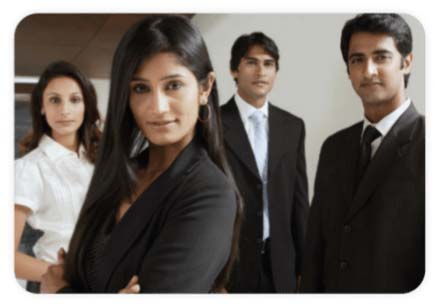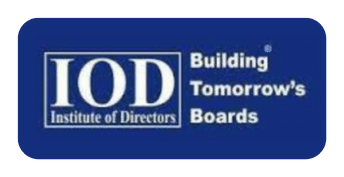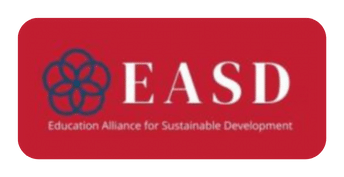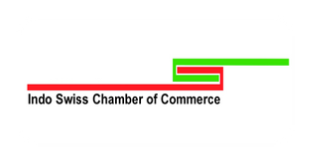SLX has launched Live Master Classes with deeper insights into sustainability, by industry experts. Enroll for the 45-minute session for free!

The certification course offers input from various experts from the industry. The course is validated globally with an industry-validated skills framework.

Do you want your job to be value-oriented? Or would you like your present job to shift focus towards meaning and value? Take this certification course and build what you are looking for!

The certification course will diversify your skillset. This will help you find better work opportunities in better companies!
The sessions will be delivered by world class faculty members with vast experience in the field of education and sustainability.
Our Certifications will help you integrate sustainable development processes and practices with ease into your deliverables & activities.
Our certification courses have comprehensive reference material on Sustainability, ESG, and many related topics.




We keep hearing about Sustainable Development Goals, or SDGs. What are they in reality?
This blog, the fourth in a series of ten, sheds some light on how SDGs were devised, their nature and purpose.
There are two aspects to this question: Nature & Human
The Earth is facing an alarming situation. Since the beginning of the industrial age, natural finite resources have been heavily exploited. Extraction, processing and usage of these finite resources have resulted in pollution of air, water and soil. In the long term, a number of calamities will result if no action is taken: global warming, rise in sea levels & disappearance of countries, extinction of marine animals, desertification, famine…
The Earth was not the only one facing exploitation. Humans have also faced exploitation. Slavery, poorly devised social structures favouring some and unscrupulous multi-nationals established in “low-cost countries” have persisted for too long.
Sustainability is, to put it simply, caring for the Earth and her nature and the well-being of us, humans. This stems from the ideal that all life forms are important. Caring and respecting life enhances one’s own prospect for experiencing an accomplished life. This also leaves an optimal environment fertile for growth for generations to come.
This is why sustainability is important: to sustain the longevity of a healthy planet and a socio–economic environment conducive to the flourishing of the global human population.
SDG Plus, who’s committed to the spirit of sustainability by its blended-learning nature, creates and shares blogs and videos on this topic regularly. One of their videos gives an easy to understand view on the transition of MDGs to SDGs. Hub.sdgplus.org is a trove of sustainability resources in English, French and German, hosting short courses and videos, to sensitize and educate, for the betterment of humanity.
Origin Story of Sustainable Development Goals
My Takeaways from this video
The video clearly tells you the story of how during the United Nations conference in Rio in 2012, they replaced the MDGs . It is eye-opening to know that it was only in September 2015, that the UN unveiled the Sustainable Development Goals, to which 193 countries ratified. The world is given a deadline for the achievement of these goals is set to 2030 and consist of 17 goals and 169 targets. The video tells us that the SDGs elaborate on the MDGs and bridge the gap of socio-economic and environmental aspects. The SDGs, unlike the MDGs, had a 360 approach during the formative phase, taking into account the current realities faced by populations throughout the world, at ground level.
To measure the degree of implementation, SDGs achievements are being monitored country-wise. For the year 2019, Denmark tops this list, followed by Sweden and Finland. Denmark has properly defined frameworks at Government level and focussed attention to Developing Cooperation and Humanitarian action. Countries appearing higher on the list are also taking significant action towards conservation of the environment to retain their positions. Legislations from the European Union to promote nature’s health have also been passed. This could explain why the top five countries of the Environmental Performance Index are in Europe. The quantification of SDGs’ fulfilment can be problematic and a holistic approach at field level is being advocated. These fulfilments also have to be continuously met. Countries doing well in meeting certain SDGs should consolidate their efforts in areas demanding it. The question is how to have rankings reflect the real commitment of nations to the SDGs.
Five years in the race and many critics are reporting that the SDGs might not be met by 2030. Many countries might choose those aspects which are easy for them to implement or consolidate. With new global challenges being presently faced including information warfare, surveillance, technology inequality and immigration, the SDGs and their interpretation will should favour adaptability. A question which arises is whether the United Nations should be more flexible to emerging variables or should new goals be drafted at country level more often. With the emergence of a global pandemic in 2020, a slow-down in economic activities and reallocation of resources to counter Covid-19 have really hindered SDGs endeavours. Should the time-frame be extended beyond 2030, or should the SDGs be revised priorly?
Fortunately, well-intentioned altruists also form part of the pool of global decision makers. The United Nations, having as one of its missions to be a centre for harmonizing the actions of nations, has come up with the Sustainability Development Goals (SDGs) in 2015. Efforts in this sense had been started in the early 2000s with the Millenium Development Goals (MDGs). The SDGs are the successor of the MDGs, building upon them and elaborating further action plans.
The SDGs set goals for all countries, unlike the MDGs focus on rich countries like Switzerland, empowering under-developed and developing ones. The SDGs also put Civil Society Organizations (CSO) into the loop through consultations prior to the elaboration of the agenda. To learn more, visit SDG Plus a partner of Swiss Learning Exchange, which is a portal dedicated to the acquisition of knowledge on sustainability for business leaders, policy makers, lifelong learners, among others. Head to the portal now for free online courses about sustainability.